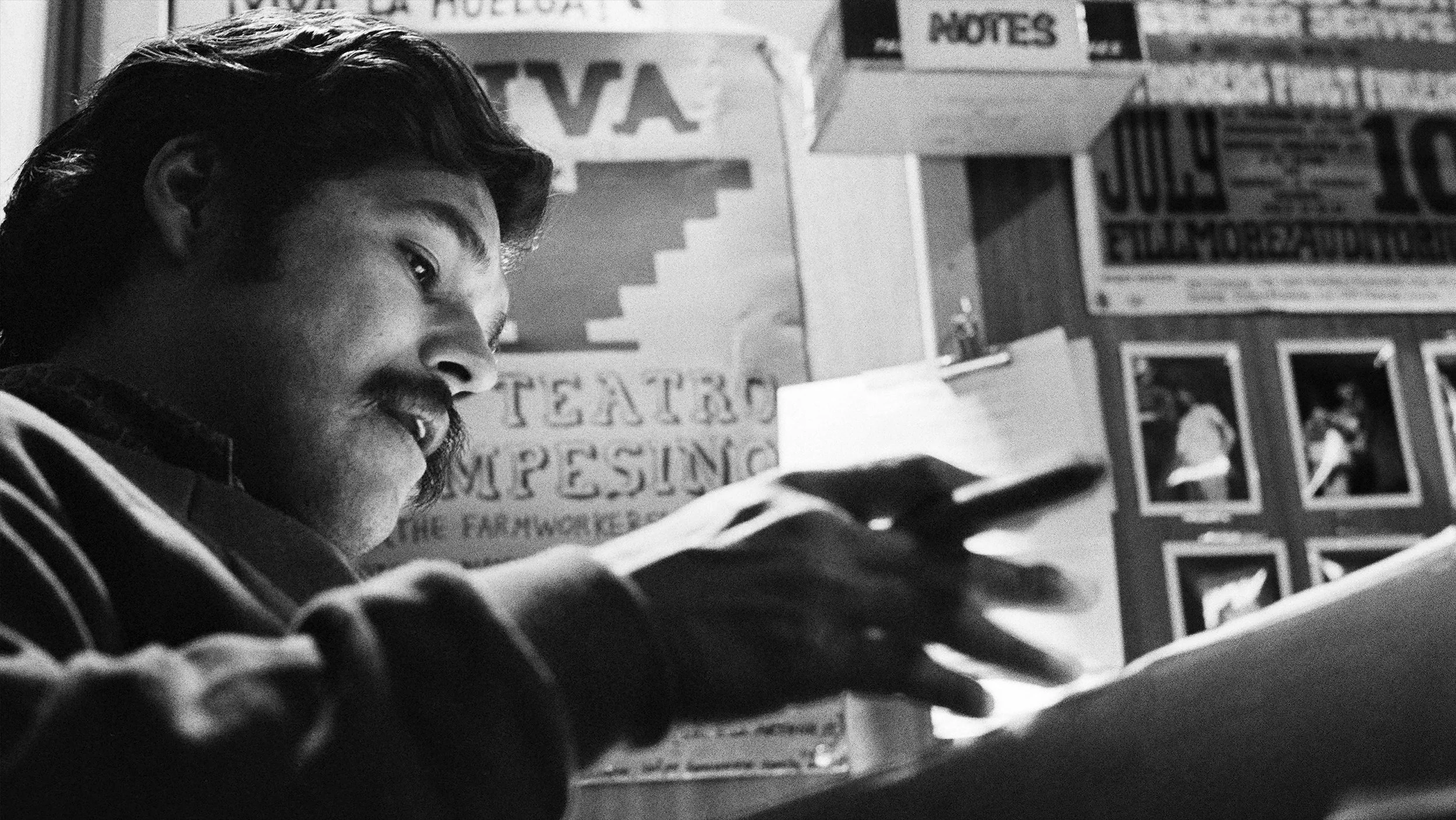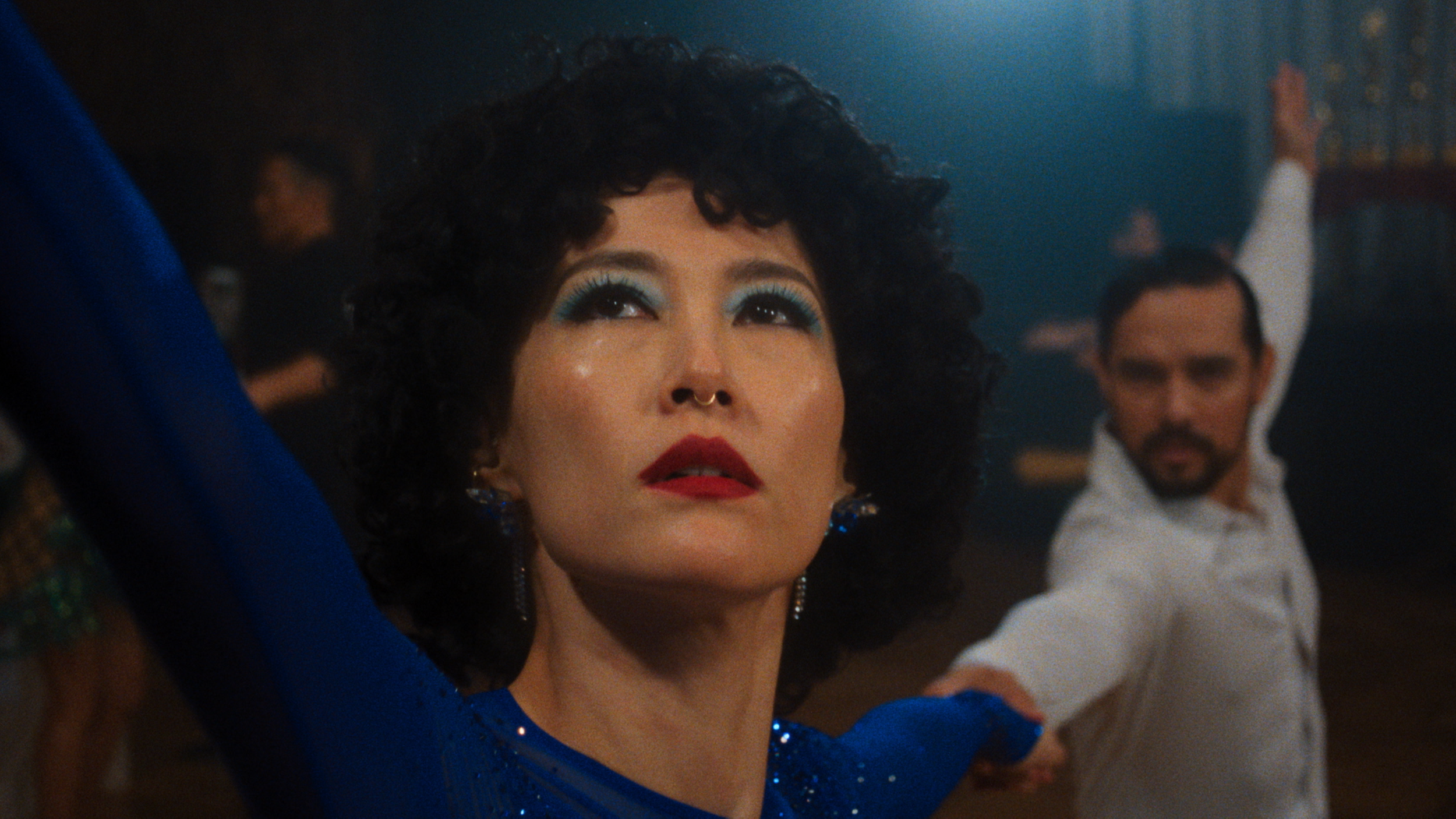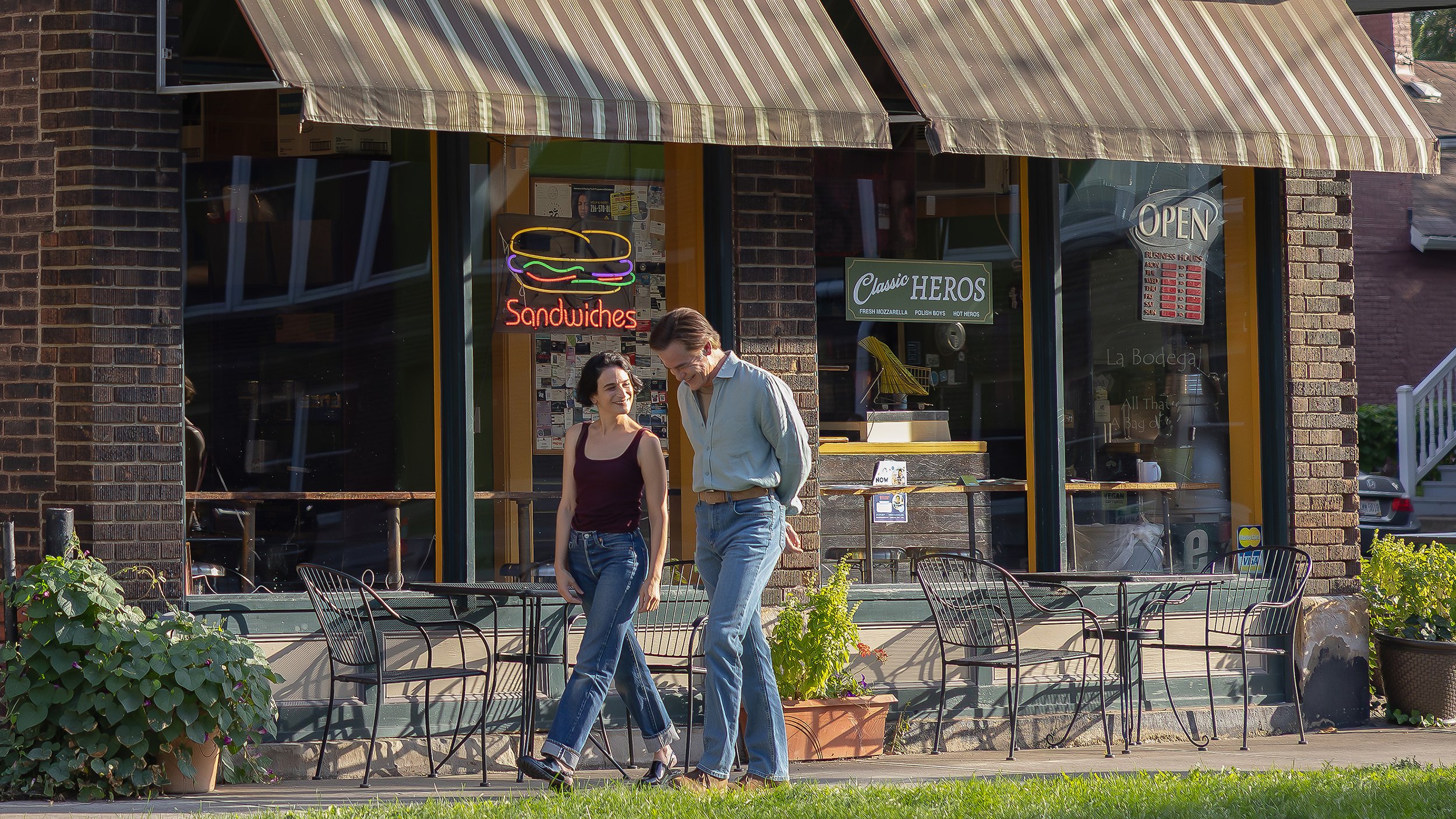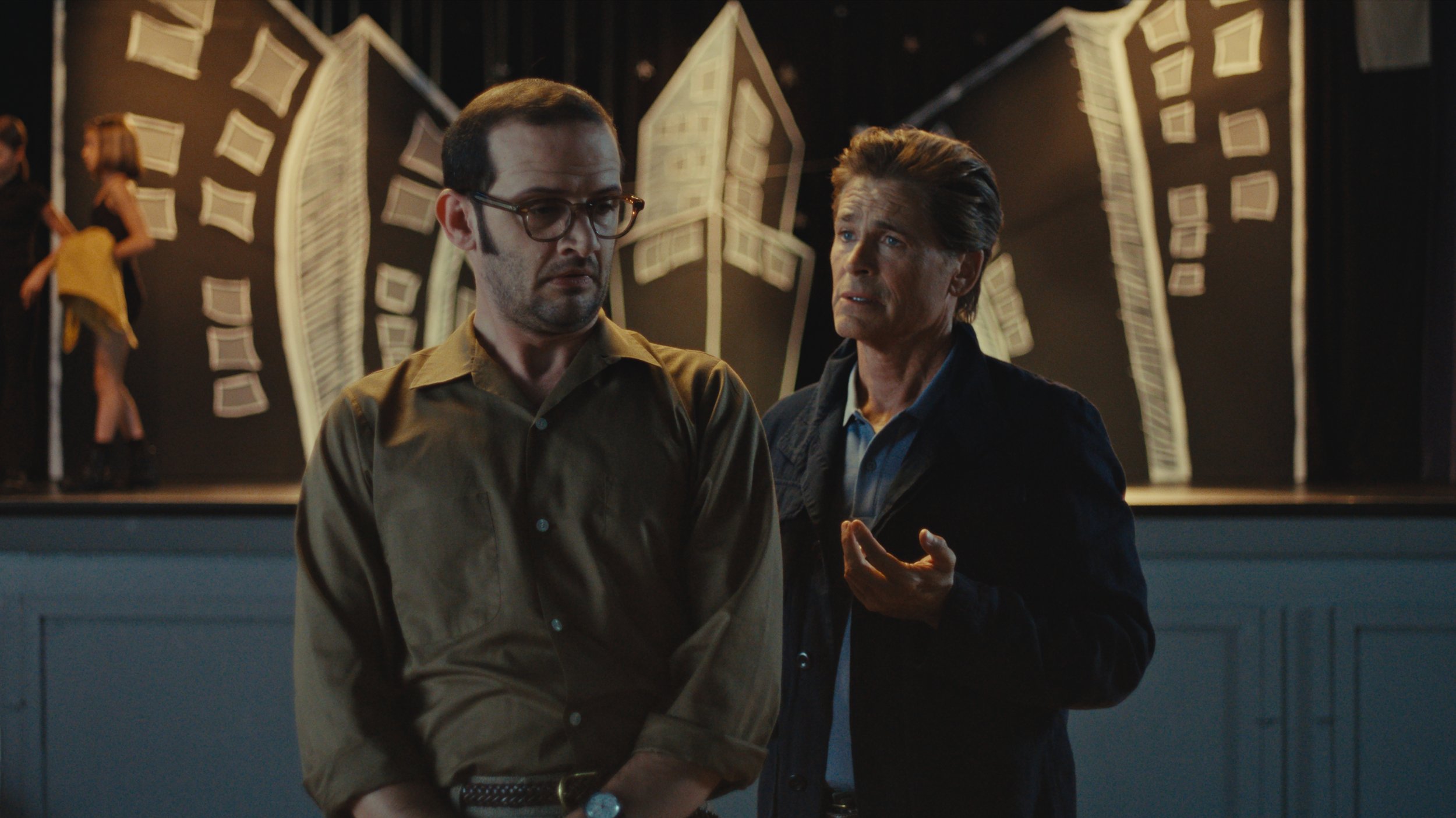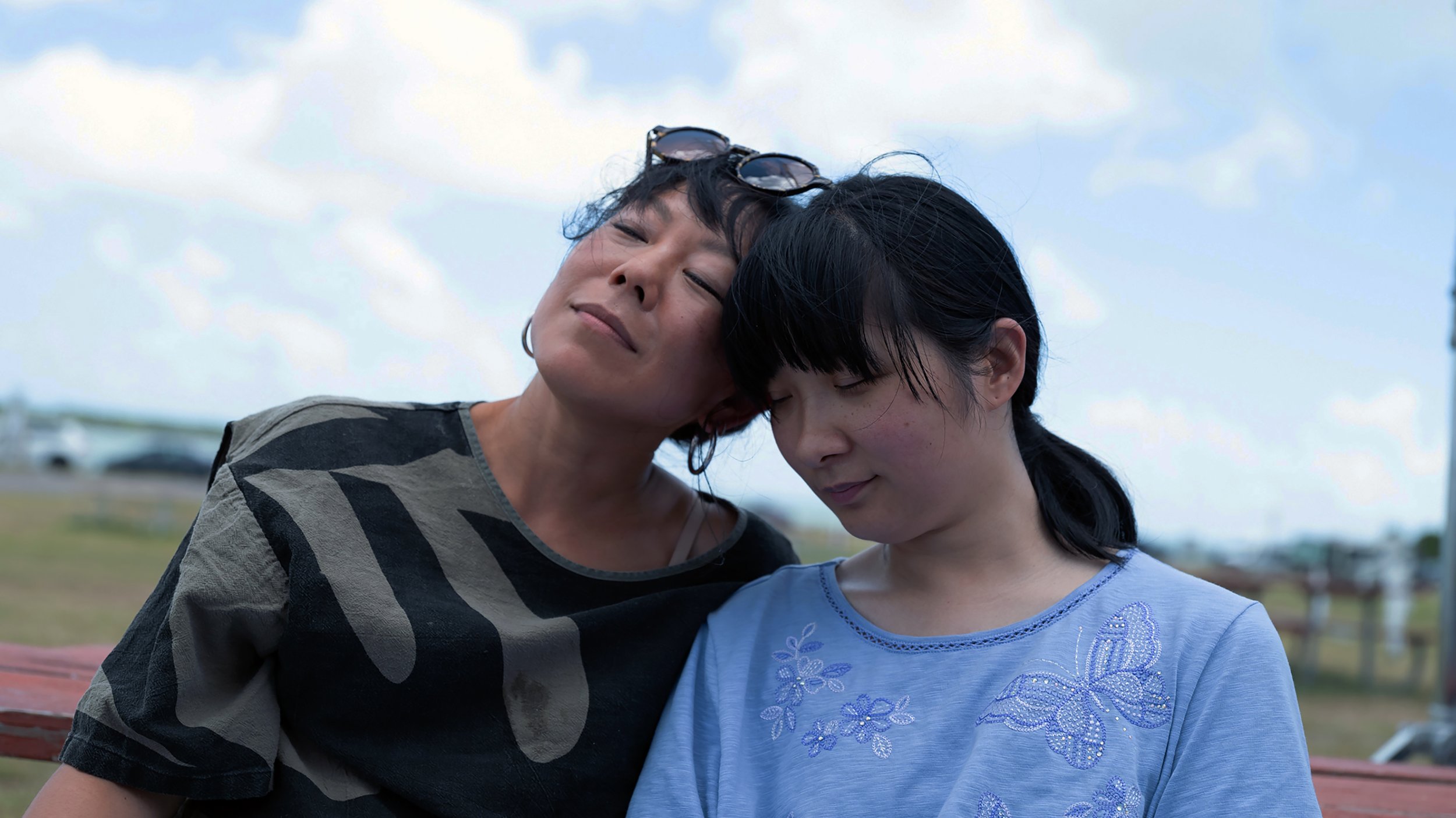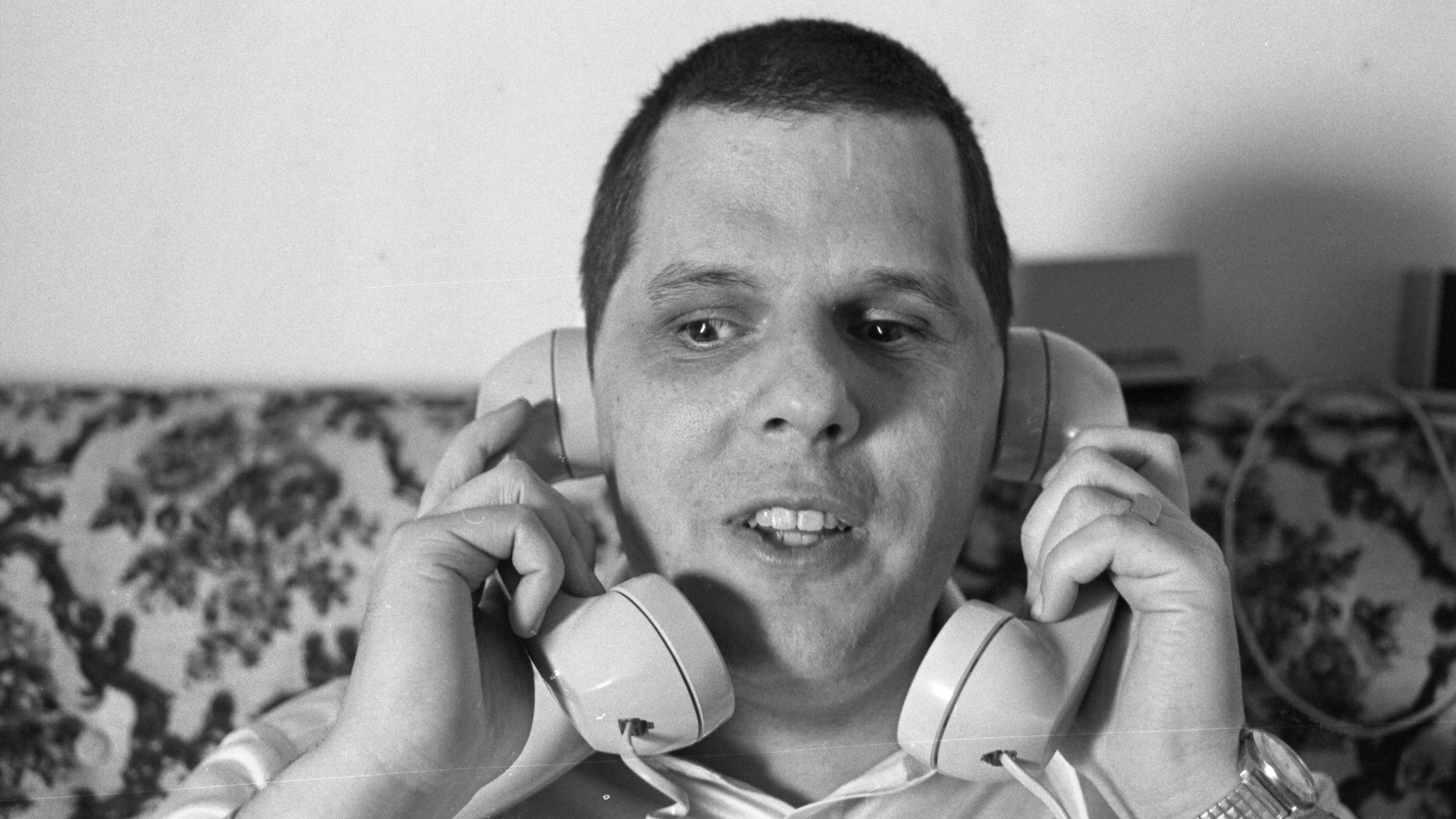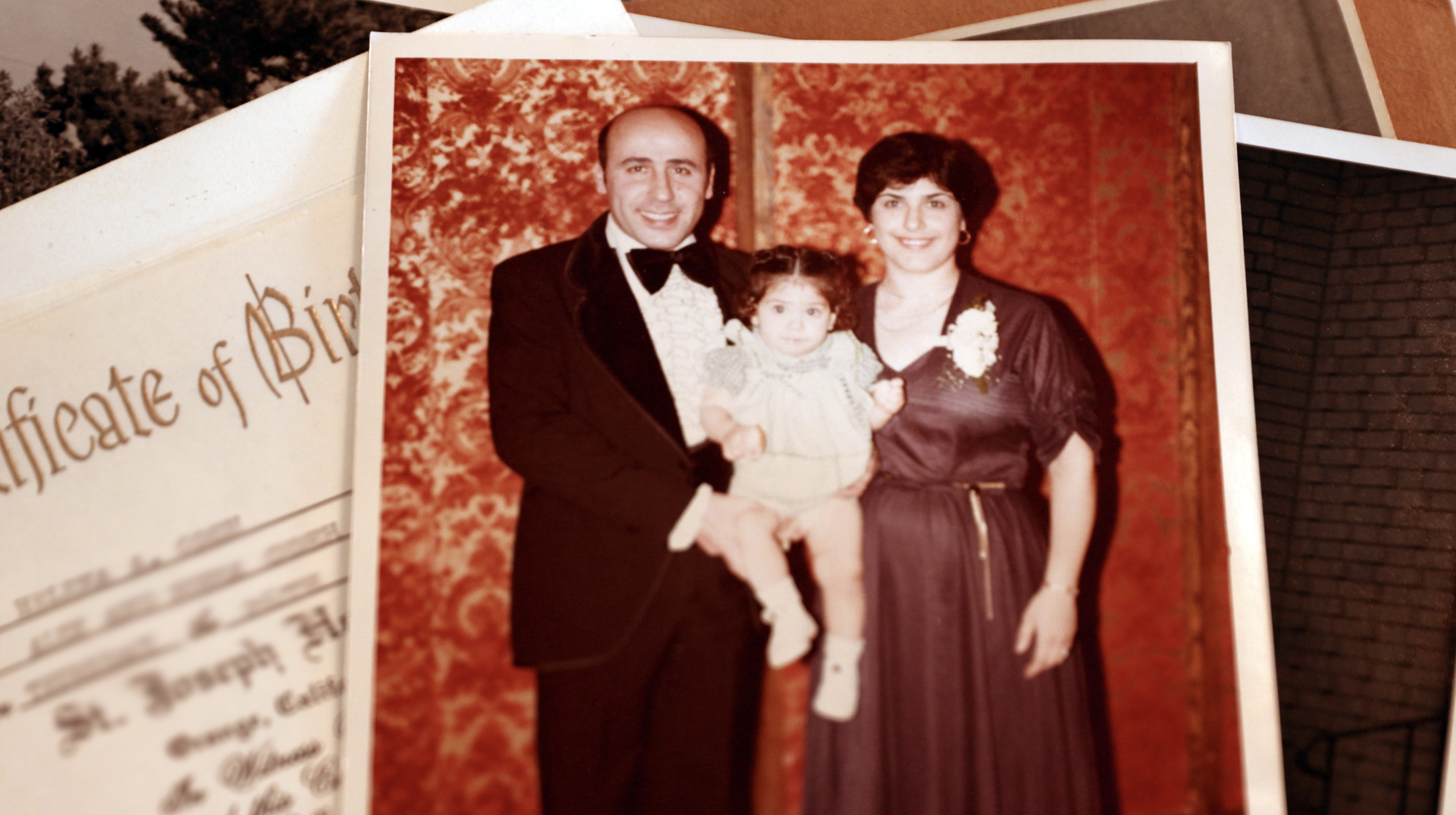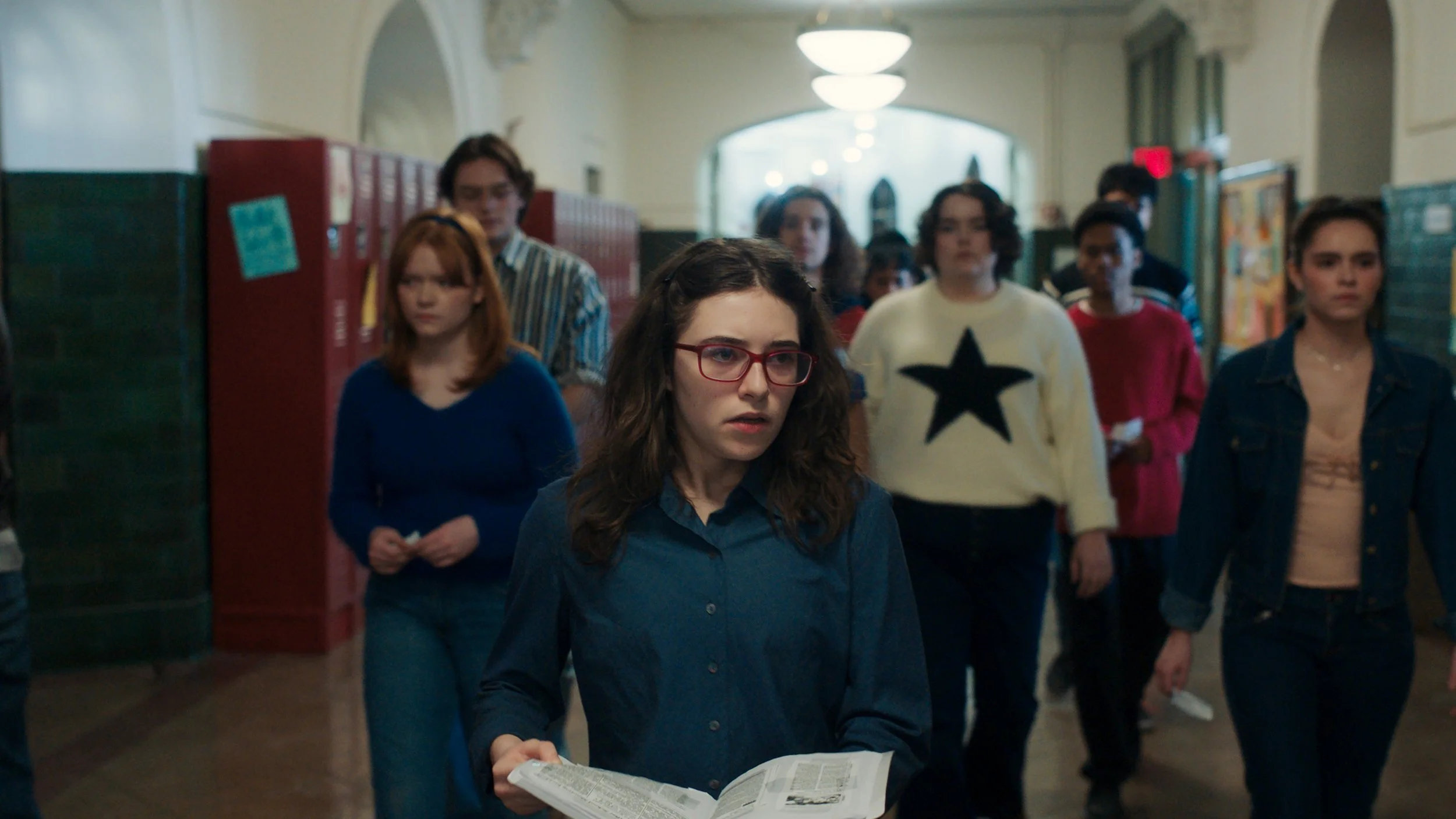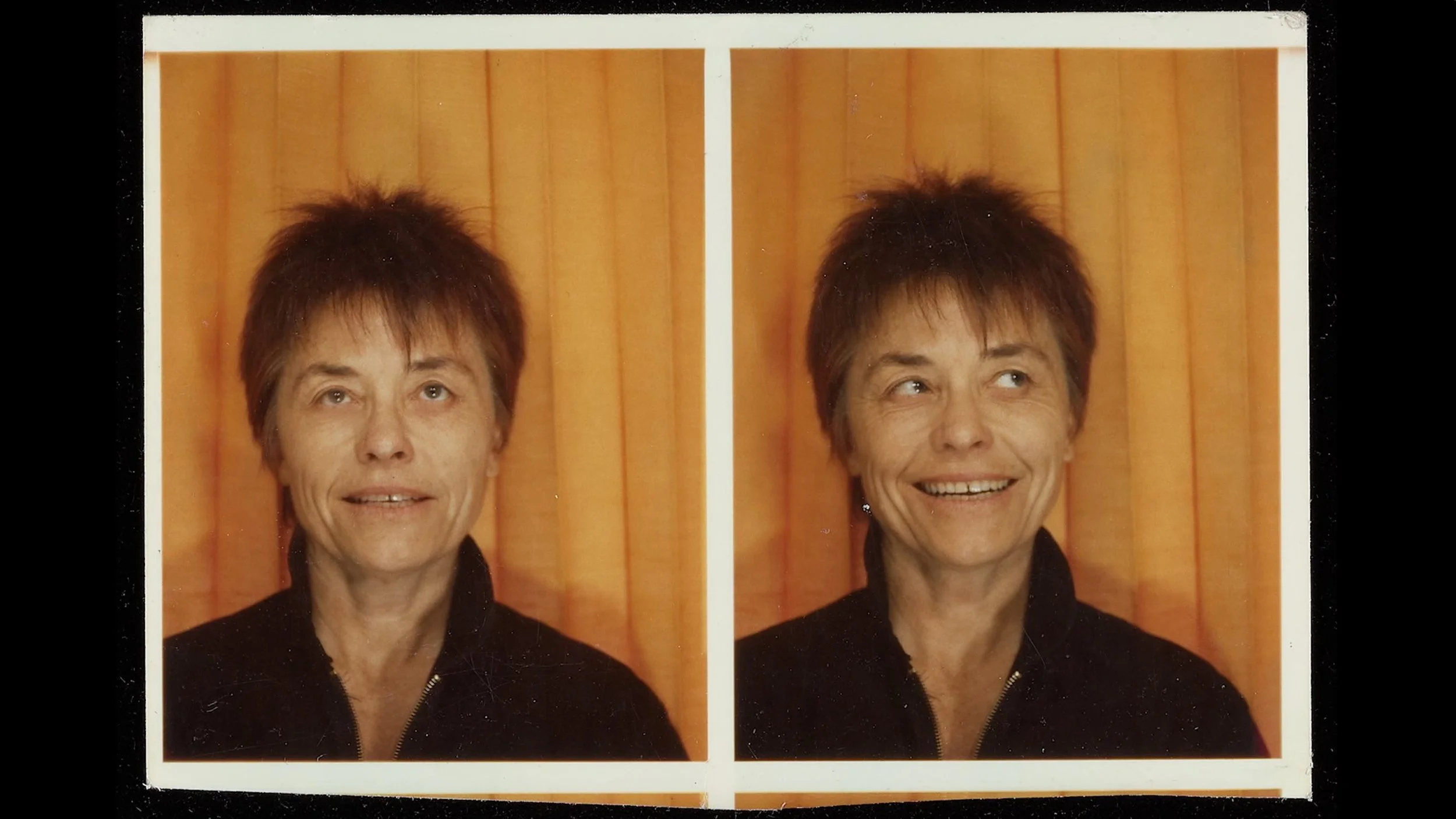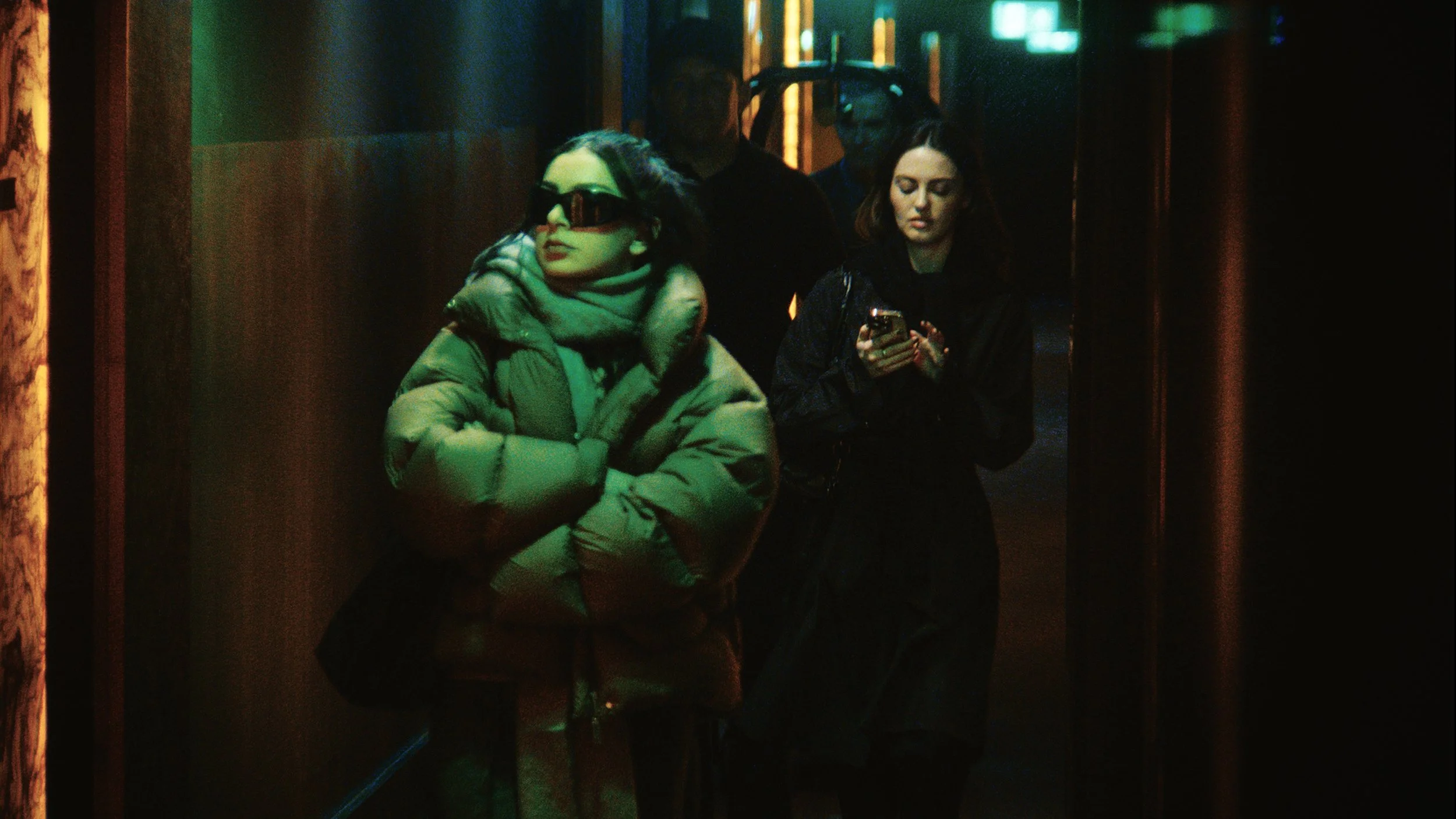Sundance review: 'American Pachuco' is the tribute that director Luis Valdez deserves, an exuberant history of the father of Chicano theater and cinema
Director David Alvarado presents an exuberant biographical portrait of a truly original storyteller in “American Pachuco: The Legend of Luis Valdez,” a great example of giving someone their flowers while they’re still around to appreciate them.
If you look at Luis Valdez’ IMDb entry, you’ll see the high spots of his career, namely, that he wrote and directed two of the landmark movies of Mexican American film in the 1980s, “Zoot Suit” in 1981 and “La Bamba” in 1987. And Alvarado gets to those movies in time — but there’s a lot of territory to cover first.
Born in Delano, Calif., in 1940, to migrant farmworkers, Valdez spent his early years as his parents did, traveling around the Southwest picking crops. But he and his older brother, Frank, had dreams of a bigger life, by going to college. Frank studied math and became an engineer, married a white woman and largely pulled away from his Chicano heritage. Luis studied English, to become a playwright and poet.
After his first play, “The Shrunken Head of Pancho Villa,” Luis Valdez met Cesar Chavez, who was leading the unionization effort of farm workers in California. Valdez convinced Chavez to let him start a theater company, to entertain the farm laborers and dramatize their struggle for better working conditions. It was street theater, improvised and with no budget — and it’s where Valdez met his future (and current) wife, Lupe.
Some time later, Valdez struck out on his own, creating a series of El Teatro Campesino theater locations in Southern California. He and his troupe also branched out into video, like with the satirical “Los Venditos” (“The Sellouts”), set in a store where companies could purchase the perfect Mexican American for their needs.
Then came Valdez’ first large-scale project, a play depicting the so-called Zoot Suit riots in Los Angeles in 1942. The play, “Zoot Suit,” is narrated by the Pachuco, a dapper and intimidating character — and in casting the play, Valdez found the perfect embodiment of the Pachuco in an unknown actor named Edward James Olmos.The importance of the Pachuco character is underlined in the documentary, as Alvarado has him, and Olmos, narrate his film.
“Zoot Suit” goes from triumphant performances in Los Angeles, an ill-fated Broadway run, and the movie adaptation, which also starred Olmos. After that, the movie moves on to Valdez’ next movie, a biopic of the ‘50s rock icon Ritchie Valens, in “La Bamba” — and it’s a thrill watching the numerous audition tapes that Valdez poured through before finding his young star, Lou Diamond Phillips. (In one interview segment, Phillips recalls that at his audition, he saw a headshot of John Stamos in the producer’s office and figured the part was already cast.)
Alvarado is blessed with a wealth of interview subjects, including Valdez’ siblings (his brother Daniel co-starred in “Zoot Suit” on stage and screen), the labor organizer Dolores Huerta, Olmos, Phillips, director Taylor Hackford (who produced “La Bamba”), and brief moments with the likes of Cheech Marin and Linda Ronstadt. The capper, though, is Luis Valdez himself, 84 at the time of filming and still as vibrant as the archival footage showed him to be in his youth.
This tribute may be late in coming, but it’s richly deserved, and pitched with the same energy and intensity of Valdez’ work. Catch it if it gets to theaters, or when PBS airs it on its “American Masters” series.
——
‘American Pachuco: The Legend of Luis Valdez’
★★★1/2
Screening in the U.S. Documentary competition of the 2026 Sundance Film Festival. Not rated, but probably PG-13 for references to violence and sexuality, and for language. Running time: 92 minutes.
The film screens again Sunday, Feb. 1, 6 p.m., at the Eccles Theatre, Park City. It also screens on Sundance’s web portal, now through Sunday, Feb. 1, at 11:55 p.m. Mountain time.
